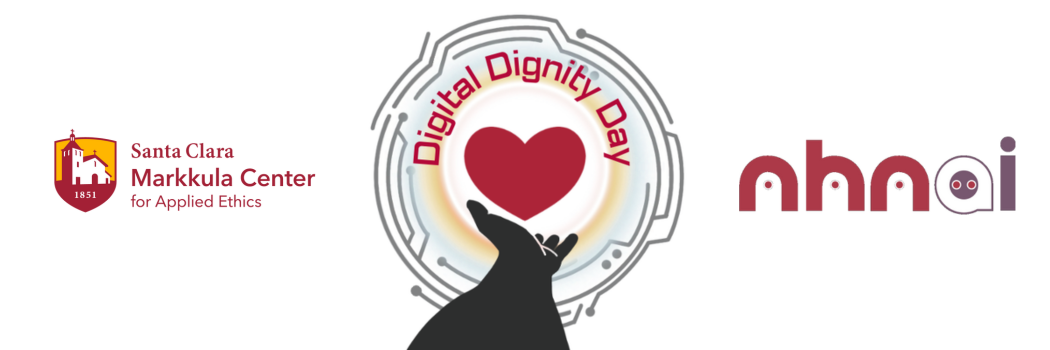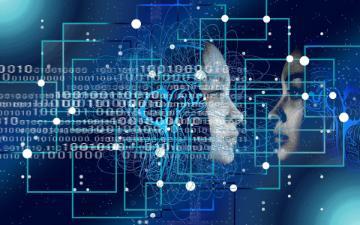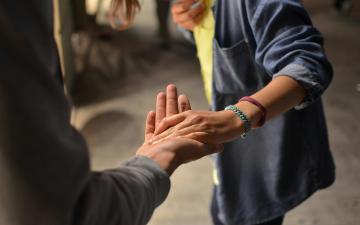Seeing God and the Scared in All Things May be Compromised without Thoughtful Consideration and Vigilance

Thomas G. Plante is the Augustin Cardinal Bea, SJ University professor, professor of psychology at Santa Clara University and emeritus adjunct professor of psychiatry at Stanford University School of Medicine. He is a faculty scholar at the Markkula Center for Applied Ethics. Views are his own.
Is AI a good thing or a bad thing? This seems to be the critical question being asked ever since ChatGPT was released on the world several years ago. This fundamental question perhaps has been an appropriate one for any technological advance over the decades and even centuries. Once invented and released to the public, was the automobile, airplane, television, the internet, email, social media, and so forth a good thing or a bad thing? Perhaps the answer to these important questions for all of these technological advances that are such important game changers in our society is the same each and every time. The answer is both! There is an upside and a downside to each of these technological inventions and advances and it often takes some time and experience with them to fully appreciate both the good and the bad that each one of them unleashes.
Human dignity can be compromised with many of our recent technological inventions and advances. Communication via voicemail, then email, then social media, then Zoom, and now perhaps through AI-generated bots may be efficient and convenient, helping us to be more productive but it also places us further and further away from actual people and all the subtleties that personal communication offers. For example, during the recent COVID-19 pandemic, Zoom became a life saver. It allowed for productive meetings, classes, doctor visits, and so much more during a time when we were all cloistered at home and quarantined. Even as the pandemic lifted, we continued to use this technology as an efficient and convenient way to interact with others both personally and professionally. In many ways Zoom was a godsend during a very difficult time. Yet, as my wife (also a clinical psychologist like myself) often says, doing Zoom psychotherapy versus traditional in-person psychotherapy is the difference between living in a black and white world versus a technicolor one. In other words, in-person communication is so much richer and deeper than communication through technology.
Perhaps there is much wisdom in this notion of black and white versus technicolor human interactions. Much has been written and discussed about how nasty social media can be with so much vitriol being spewed when people can hide behind their computers in an anonymous manner. Would people feel as comfortable to say insulting and derogatory things to someone’s face as they do through social media?
AI can be used to interact with all sorts of bots in personal and professional life. In fact, AI is even used with robots that can act as romantic partners. Is this a good thing or a bad thing? During the pandemic, much was written about people losing their ability to interact with others socially. In fact, I ended up seeing several patients in my small clinical practice who developed social phobia after being quarantined and interacting with others only via their computers for months on end. Their social skills atrophied and they became more uncomfortable around real people once the pandemic eased. Even after five years since the pandemic began, I still have patients who struggle with going back to in-person human interactions.
As people become more engaged with AI bots and robots with less actual interaction with real humans in real time, might they lose their social skills and comfort? Might it be easier to lose their appreciation for human dignity in the process? In Jesuit higher education and Ignatian spirituality, we often refer to “seeing God in all things.” In doing so, we see the sacred in all. This is an extremely important perspective to maintain, most especially in our very challenged and highly divisive society now.
Will we be able to see the sacred in all when we have fewer opportunities to truly interact with humans in real time compared with increasing interactions with AI generated bots? The jury may be still out but I have to wonder if while we are enjoying the upsides and efficiency of AI we may pay a price for it with the downside of losing our capacity and skills for experiencing the sacred and perhaps God in everyone. Maximizing the upsides while minimizing the potential downsides of our unfolding AI world must keep the sacredness and dignity of all in mind. This may be a challenge but perhaps our very survival might ultimately depend upon it.





